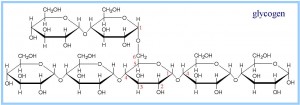Rare Disease Gets the Hollywood Treatment
 Hollywood is shedding light on a rare metabolic disease in the new movie, Extraordinary Measures. In it, Harrison Ford plays, Dr. Robert Stonehill, a scientist enlisted by John Crowley (played by Brendan Frazier) to help find a cure for his two children who suffer from Pompe Disease. The movie is based on Crowley’s book “The Cure: How a Father Raised $100 Million and Bucked the Medical Establishment in a Quest to Save His Children.” The research was done by Dr. William Canfield (Stonehill in the movie), by Cambridge-based company Genzyme. The book, and movie, highlight some of the difficulties of finding treatments for rare diseases. Notably, how do we find the many millions of dollars it takes to bring a drug to market for a disease with only a small number of patients who will need it? Fortunately, there is now a section of the National Institutes of Health which is tasked with disseminating information about rare diseases, and helping research into those diseases- the Office of Rare Diseases Research (ORDR).
Hollywood is shedding light on a rare metabolic disease in the new movie, Extraordinary Measures. In it, Harrison Ford plays, Dr. Robert Stonehill, a scientist enlisted by John Crowley (played by Brendan Frazier) to help find a cure for his two children who suffer from Pompe Disease. The movie is based on Crowley’s book “The Cure: How a Father Raised $100 Million and Bucked the Medical Establishment in a Quest to Save His Children.” The research was done by Dr. William Canfield (Stonehill in the movie), by Cambridge-based company Genzyme. The book, and movie, highlight some of the difficulties of finding treatments for rare diseases. Notably, how do we find the many millions of dollars it takes to bring a drug to market for a disease with only a small number of patients who will need it? Fortunately, there is now a section of the National Institutes of Health which is tasked with disseminating information about rare diseases, and helping research into those diseases- the Office of Rare Diseases Research (ORDR).
A Quick Primer about Pompe Disease
Pompe disease is a rare disease that is estimated to occur in approximately 1 in every 40,000 births. It is an inherited and often fatal disorder that disables the heart and muscles.
Glycogen is a branched chain of glucose molecules and is the storage form of sugar. Glucose is stored as glycogen predominantly in liver and muscle cells. Alpha-glucosidase (GAA) is an enzyme used by the body to break down glycogen when sugar (glucose) is needed for energy.
In Pompe disease, a mutations in the GAA gene reduces or completely eliminates this essential enzyme. Excessive amounts of glycogen accumulate everywhere in the body, but the cells of the heart and skeletal muscles are the most seriously affected. The severity of the disease and the age of onset are related to the degree of enzyme deficiency.
Early onset (or infantile Pompe disease) is the result of complete or near complete deficiency of GAA. Symptoms begin in the first months of life, with feeding problems, poor weight gain, muscle weakness, floppiness, and head lag. Breathing difficulties are often complicated by lung infections. The heart is greatly enlarged. Most babies with Pompe disease die from cardiac or respiratory complications before their first birthday.
Late onset (or juvenile/adult) Pompe disease is the result of a partial deficiency of GAA. The onset can be as early as the first decade of childhood or as late as the sixth decade of adulthood. The main symptom is muscle weakness which affects the breathing muscles and ultimately leads to death from respiratory failure. A diagnosis of Pompe disease can be confirmed by screening for the common genetic mutations or measuring the level of GAA enzyme activity in a blood sample — a test that has 100 percent accuracy.
Is there any treatment?
For more information:
 |
Resounding Health(tm) Pompe Disease |
![]()




The movie showed an unconditional love of parents to their children. They would go Extraordinary Measures to save their kid. The movie also increases awareness about rare genetic disease called Pompe Diease.